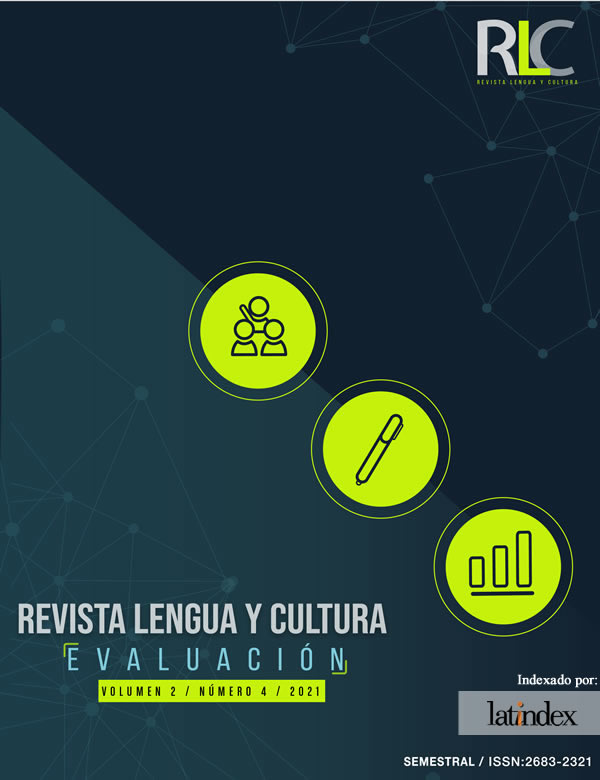The digital competences of the contemporary translator in Mexico
Abstract
The effective use of information and communication technologies, in the form of digital competence, has emerged as an indispensable part of human life in the 21st century, not only for leisure but also for work. This study sets out to investigate the development of digital competence in the realm of translation by considering personal variables such as gender, age, translation experience y self-reported degree of digital competence. The participants were 201 translators who were surveyed nationally and virtually through an adapted Questionnaire for Digital Competences of Contemporary Translators, which encompasses 87 items grouped into nine categories. The results showed that digital safety and office automation were the most reported digital competence categories, whereas project planning and computer-assisted translations were the least reported ones, though in general the whole sample obtained relatively low ratings in digital competence (below 1.5 on a 0-3 scale). Regarding the personal variables, gender differences were found in digital competences within the category of Localization and Audio-visual translation, meaning that male translators indicated more use of such competences. Also, translators’ age positively correlated with five competence categories and translation experience did correlated with the nine categories, meaning that the latter emerged as a better predictor. Interestingly, significant differences across three competence auto-perception levels were graphically observed, reflecting high consistency in what the participants reported for each particular competence. Finally, some pedagogical and professional implications are discussed for the sake of curriculum design and translation training and development.
Downloads
References
Barceló Martínez, T. y García Luque, F. (2016). La influencia de las nuevas tecnologías en la profesión: el traductor en la era de internet. Quaderns de Filologia: Estudis Lingüístics XXI: 39-56. doi: 10.7203/qfilologia.21.9311
Cambridge Dictionary. (2020) Competence. Recuperado el 4 de enero de 2021, de
https://dictionary.cambridge.org/es/diccionario/ingles/competence
Chodkiewicz, M. (2012) The EMT framework of reference for competences applied to translation: perceptions by professional and student translators. The Journal of Specialised Translation, 17. https://jostrans.org/issue17/art_chodkiewicz.pdf
Da Silva, F. C. (1 de febrero de 2021). Píldoras de Tradumática. https://www.pildorasdetradumatica1.com
Da Silva, F. C. (2018). Competencias digitales del traductor profesional del siglo XXI (Primera ed.) [E-book]. Píldoras Tradumática. https://www.pildorasdetradumatica1.com/competencias-digitales-y-herramientas-informaticas-del-traductor-del-siglo-xxi/
Diaz Fouces, O. (2019) Algunas consideraciones sobre el papel de las tecnologías en los estudios de traducción y en la formación de traductores. Hikma. 18, 1, pp. 57-84. https://www.academia.edu/38683837/Algunas_consideraciones_sobre_el_papel_de_las_tecnologías_en_los_Estudios_de_Traducción_y_en_la_formación_de_traductores
EMT expert group (2009). Competences for professional translators, experts in multilingual and multimedia communication.
https://ec.europa.eu/info/sites/info/files/emt_competences_translators_en.pdf
Ferrari, A. (2013). DIGCOMP: A framework for developing and understanding digital competence in Europe. Sevilla: JRC-IPTS. https://doi.org/10.2788/52966.
García-Valcárcel, A. y Hernández, A. (2013). Recursos tecnológicos para la enseñanza e innovación educativa. Madrid: Síntesis.
INTEF (2017) Marco Europeo de Competencia Digital Docente. https://aprende.intef.es/sites/default/files/2018-05/2017_1020_Marco-Común-de-Competencia-Digital-Docente.pdf
Lizenberg, N. (2015, junio,11-13). Desarrollo de competencias digitales para traductores [ponencia]. Congreso Internacional de Traductores e Intérpretes: CITI 2015, San Miguel de Tucumán, Argentina.
Márquez, D. A. (2011) Las 11 competencias del traductor: el perfil ideal en servicios de traducción. Revista de Ciencias Sociales. Comunicación, Cultura y Política.
https://journal.universidadean.edu.co/index.php/revistai/article/view/659
OECD (2012), Better Skills, Better Jobs, Better Lives: A Strategic Approach to Skills Policies, OECD Publishing, Paris, http://dx.doi.org/10.1787/9789264177338-en
PACTE (2001) La competencia traductora y su adquisición. Quaderns. Revista de traducció, 6 (pp. 39-45) Universitat Autònoma de Barcelona. Departament de Traducció i d’Interpretació. https://ddd.uab.cat/record/2736
Palma, M. G. (2019). Educación y exclusión digital: los falsos nativos digitales. Revista de Estudios Socioeducativos. ReSed, (7), 27-41. https://revistas.uca.es/index.php/ReSed/article/view/4404
Samson, R. (2013) El aprendizaje de las herramientas informáticas en la formación del traductor. Revista Tradumàtica: tecnologies de la traducció. 11, (247-256), DOI: https://doi.org/10.5565/rev/tradumatica.54
Copyright (c) 2021 Alfredo Marin-Marin, Maria Isabel Hernández-Romero

This work is licensed under a Creative Commons Attribution-NonCommercial-NoDerivatives 4.0 International License.













